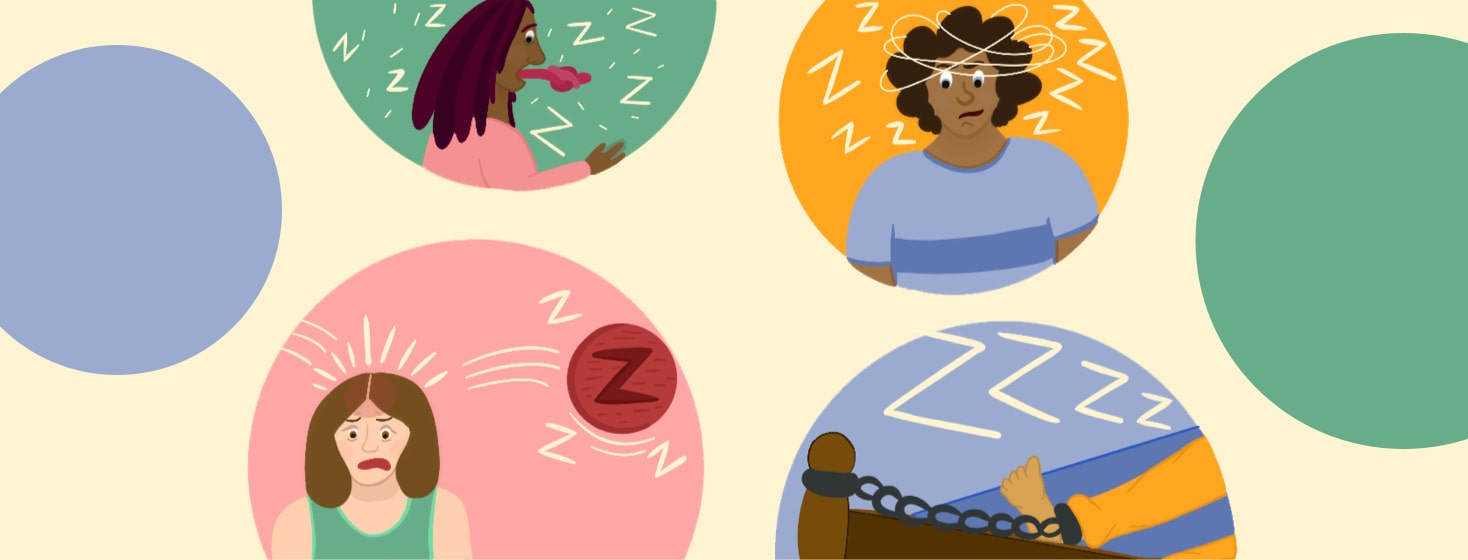Words I Invented for Fatigue Because the English Language is Inadequate
When I first got sick with lupus, I was not a stranger to feeling tired. Throughout high school and college, I had spent many late nights studying or practicing the viola, only to stumble out of bed at the crack of dawn so I could catch the bus to school the following morning. I remember falling asleep in math class nearly every day during high school, only to jolt awake when my teacher called my name or the bell rang.
But as tired as I was in high school, the fatigue I felt when I first got sick with lupus was unlike anything I had ever experienced. After a late-night celebration with friends following an orchestra concert or after staying up past midnight practicing for a recital, I used to be able to climb out of bed and shake off my tiredness by early afternoon.
Now, my body felt like someone had filled it with lead as I slept. I simply couldn't force my legs to lift me out of bed. Too tired even to form words, I woke up each morning feeling as if my head was filled with cotton. Unlike the tiredness I felt before I got sick with lupus, this fatigue didn't fade away around lunchtime.
It lingered for days, months, then years. Worst of all, I couldn't explain my fatigue to my professors or vent about it to my friends. None of them had ever experienced what I was going through. My classmates would nod in agreement when I said I was exhausted, but none of them collapsed on benches in the hallways or missed their morning classes because they couldn't get out of bed like me. None of them were ever so tired that they hallucinated. For a word lover like me, not having the vocabulary to describe my experience was deeply isolating.
It took 2 years of living with debilitating lupus fatigue before I finally started to cobble together words to describe my fatigue. While imperfect and a little bit silly, these phrases helped me communicate with my friends and my doctors about how I was feeling.
Hit-in-the-head fatigue
The first sign that it was going to be a rough fatigue day was a feeling of pressure on my forehead. It felt almost as if I had been smacked in the face. This level of fatigue usually intensified as the day went on, developing into a headache and making my limbs feel heavy.
Tongue-tied fatigue
There were many times during my first few years with lupus in which I was so exhausted that I would mix up words or become tongue-tied. My brain would feel sluggish and my tongue would feel thick. Words often got lost between my brain and mouth. Once, I tried to ask a student if they were playing the cello at our rehearsal and instead asked, "Are you ceiling?"
Hallucinogenic fatigue
My lupus went untreated for 2 years as I struggled to get diagnosed. During that time, I would sometimes become so exhausted that the walls around me seemed to spin. I was lucky that this never happened when I was driving.
Stuck-to-the-mattress fatigue
Many mornings during those first 2 years of my disease, I literally couldn't get out of bed. Staying in bed motionless also didn't relieve the fatigue. The only way to get through the day was to stay in bed and not move.
Despite the awful fatigue I lived with for years, my story has a happy ending. After several months, I finally began to recognize the pattern of my fatigue and to understand how to prevent post-exertional malaise. I also found a doctor who really listened to me and took it seriously if I wasn't feeling well. I'm very fortunate not to have experienced these fatigue levels in years.

Join the conversation